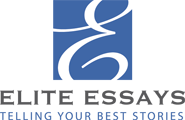HBS - New Application Analysis
For sheer volume alone, HBS has always been one of the most difficult MBA programs to apply to. And last year, their requirement of three setbacks (on top of three accomplishments, a goals essay and a freebie) initially stumped every one of my clients, even those who were eventually accepted. But they've thrown the doors wide open this year with only 2 main questions (+1 for dual program applicants) that look straightforward enough, while adding the first-of-its-kind twist of a post-interview essay nominally giving applicants the "last word" and due within 24 hours after the interview. Clear Admit is reporting that the online application also includes a prompt for a 500-word goals-type essay. I haven't confirmed that, but we hope it's true; that would clear up a lot of doubts about the overall approach to the application.
Before we get into our analysis, let us say that HBS is trying to accomplish two things with these changes. First, by simplifying the application, they are making it much easier for more people to apply (better stats, more application fees, bigger and more diverse applicant pool - better, more, bigger, more diverse - all good) while easing their own review workload. Second, they are trying to reduce the influence and importance of outside help whether it be from friends or hired guns like, well, like me or Michele.
Assuming Clear Admit is right, what we have then is an easy application, consisting of a Goals essay and the following:
Tell us about something you did well. (400 words)
Tell us about something you wish you had done better. (400 words)
We consider the former nothing more than a standard Leadership/Accomplishment essay, while the latter is a garden variety Failure/Setback essay. HBS has essentially reduced their accomplishment and failure requirements from past applications by two-thirds. A lot of people will probably be telling themselves that it must be more complicated than that and will try to second guess the HBS adcom, but we don't think they are up to any tricks here. Adcoms rarely are.
With fewer essays, however, topic choice becomes a much bigger issue. At this point, we can suggest two approaches for “something you did well”:
“Surprise”: if you’re coming from a traditional b-school career background and planning on a traditional career path (e.g., finance to finance, consulting to consulting, finance to consulting, etc.), then you might consider writing about your endeavors in the arts, community development, beer making, etc., and let your resume, LOR and interview explain your work accomplishments. The objective here, of course, is to show the adcom something delightfully unexpected about you.
“Reassure”: if you’re moving into something less traditional or even audacious, then it might be a good idea to show your progress towards starting your own solar energy business or medical service non-profit, for example, or a related experience that supports your potential for success in such an endeavor.
An argument can be made for either approach and there are too many variables in each applicant’s case to proffer a magic formula, but hopefully this breakdown gives you a starting point to consider your strategy.
The "something you wish you had done better" could be a setback that highlighted your need for an MBA, but it's more important to show what you learned from your mistakes and how you improved the next time. Judging by the fact that HBS still requires your three recommenders to address your ability to incorporate constructive criticism, they have a strong interest in your ability to learn from failure/others.
There isn't any information available yet about the post-interview essay, but we imagine it will be a free-form opportunity to discuss, not what you weren't able to cover in your interview or essays, but what you learned about yourself through the interview process, both good and bad. First of all, they call it a "Post Interview Reflection", not "Post Interview Accomplishment Dump". Second of all, they already have your resume, essays, LOR and interview information. Your best work should already be in there somewhere.
Our views might change as the season progresses and of course we'll continue posting our thoughts as they develop, but for now, this is how we plan to advise our clients.
Finally, we recommend you watch HBS Dean Nitin Nohria’s TEDx talk about the value of humility and self-reflection to understand more about what apparently underlies their new approach this year.
